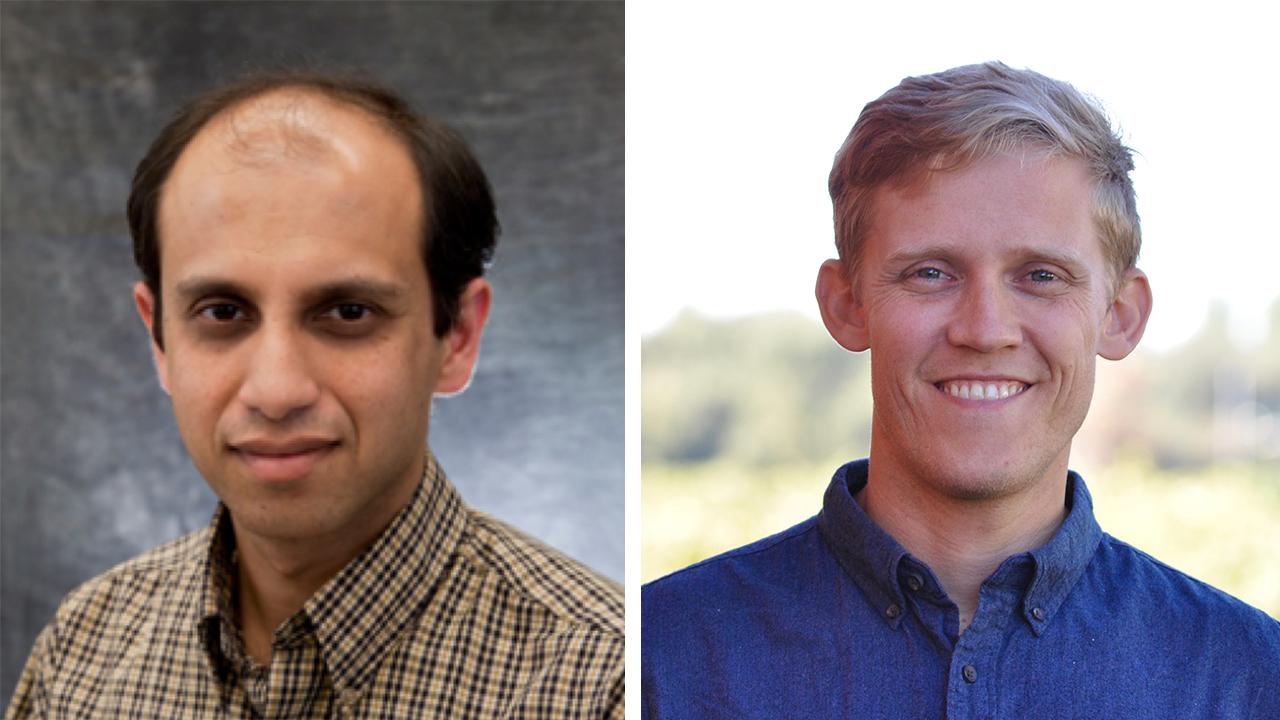
UC Davis to Lead New Artificial Intelligence Institute for Next-Generation Food Systems
By AJ Cheline and Diane Nelson
The University of California, Davis, has been awarded $20 million as part of a multi-institutional collaboration to establish an institute focused on enabling the next-generation food system through the integration of artificial intelligence, or AI, technologies. The award is part of a larger investment announced this week by the National Science Foundation, or NSF, in partnership with several federal agencies — distributing a total of $140 million to fund seven complementary AI research institutes across the nation.
The AI Institute for Next Generation Food Systems, or AIFS, aims to meet growing demands in our food supply by increasing efficiencies using AI and bioinformatics spanning the entire system — from growing crops through consumption. This includes optimizing plant traits for yield, crop quality and disease resistance through advances in molecular breeding, in addition to minimizing resource consumption and waste through development of agriculture-specific AI applications, sensing platforms, and robotics. The team’s plan also intends to benefit consumers through enhancements to food safety and development of new tools to provide real-time assessment of meals that can guide personalized health decisions.
‘Paving the way to a transformation’
“The food system is ripe for disruption, with many advances over the past decade paving the way to a transformation,” said Ilias Tagkopoulos, professor in the UC Davis Department of Computer Science and Genome Center, and director of the new institute. “AI will serve as both the enabling technology and the connective tissue that brings together these elements and catalyzes this transformation to a safer, fairer and more efficient food system for the next generation.”
Two professors from the UC Davis College of Agricultural and Environmental Sciences are working with Tagkopoulos on the project. They include Nitin Nitin, professor in the Departments of Biological and Agricultural Engineering and Food Science and Technology, and Mason Earles, assistant professor in the Departments of Viticulture and Enology and Biological and Agricultural Engineering. Xin Liu, professor in the UC Davis Department of Computer Science, is also a principal investigator.
The institute has been designed to be inclusive, fostering collaborations to develop open-source AI solutions across the food system. The institute will bring together more than 40 researchers from six institutions: UC Davis; UC Berkeley; Cornell University; the University of Illinois, Urbana-Champaign; UC Agriculture and Natural Resources; and the U.S. Department of Agriculture’s Agricultural Research Service.
“Food plays a fundamental role in human health and well-being, and has far-reaching impacts on the national economy and environment,” said Helene Dillard, dean of the College of Agricultural and Environmental Sciences. “That makes this collaborative effort especially timely and vital.”
Engagement and collaboration
In addition to the scientific and technical objectives, the institute’s charter includes a significant focus on education, outreach and collaboration. The plan includes programs specific for K-16 education, college internships and fellowships, curriculum enrichment, broadening participation and diversity, corporate engagement, and knowledge transfer. Development of the proposal for the award was facilitated by the Interdisciplinary Research and Strategic Initiatives division of the Office of Research at UC Davis. The institute is designated as a special research program under the administration of the Office of Research.
Funding for the institute is provided by the U.S. Department of Agriculture’s National Institute of Food and Agriculture as part of a larger initiative led by the U.S. National Science Foundation to establish new artificial intelligence institutes to accelerate research, expand America's workforce and transform society in the decades to come. The NSF AI institutes will collaborate with industry and government to advance the frontiers of AI as well as a range of science and engineering disciplines and societal sectors that stand to benefit from AI innovation.
“As with many of our world’s greatest challenges, addressing the critical needs in our food supply requires extensive collaboration between experts from different disciplines,” said Prasant Mohapatra, vice chancellor for research at UC Davis. “The collection of expertise assembled for this new institute brings much hope for transformative advancements to be realized.”